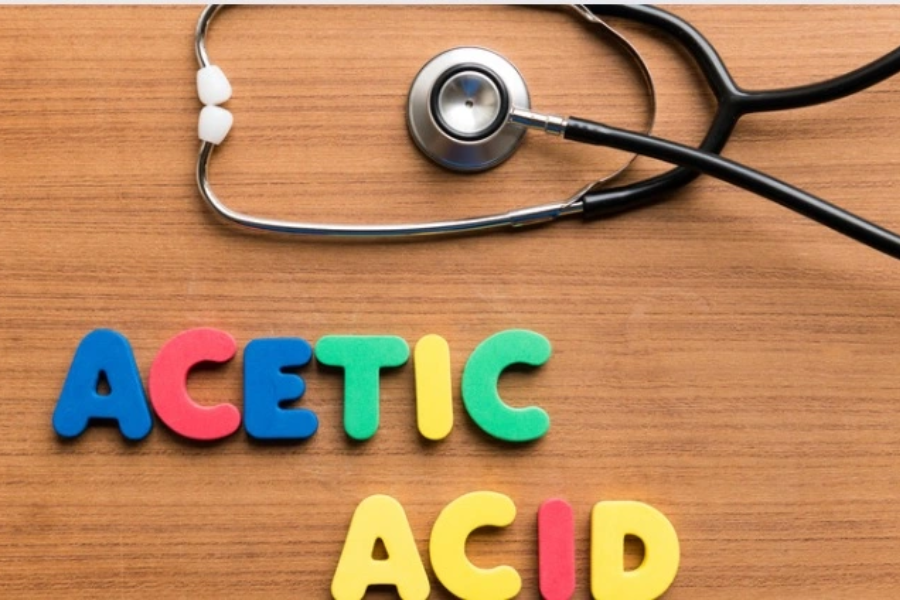Acetates: Key Uses, Benefits, and Safety in Various Sectors
Acetates, or acetatas, are essential chemical compounds with widespread uses in diverse industries such as healthcare, textiles, food manufacturing, and industrial processes. Derived from acetic acid, these versatile compounds are integral to the production of a variety of products we interact with daily.
This article explores the role of acetates, their benefits, common applications, and important safety precautions when handling them.
What Are Acetates?
Acetates are chemical compounds made up of the acetate ion (CH₃COO⁻) and are generally classified as salts or esters of acetic acid. They are formed when acetic acid interacts with alcohols or bases. Sodium acetate (CH₃COONa), for example, results from acetic acid reacting with sodium hydroxide, while ester compounds like ethyl acetate (CH₃COOCH₂CH₃) are produced when acetic acid reacts with alcohols.
Acetates are highly valued for their versatility, as they can be used in numerous industrial applications. Different forms of acetate are selected depending on the requirements of each specific industry, including pharmaceuticals, textiles, food, and more.
Key Applications of Acetates
1. In the Pharmaceutical Sector
Sodium Acetate: This compound is often used in medical treatments, particularly to restore electrolyte balance in patients with low sodium levels. It is also employed as a buffering agent in pharmaceutical solutions to maintain the stability and pH of medications.
Acetate Esters: Acetate esters like ethyl acetate play a crucial role as solvents in the pharmaceutical industry. They aid in the extraction, purification, and formulation of active pharmaceutical ingredients, ensuring the potency and safety of medicinal products.
2. In Textile Manufacturing
Cellulose Acetate: A major use of acetates in textiles is for producing cellulose acetate fibers. These fibers resemble silk and are favored for their luxurious appearance, comfort, and durability. They are commonly used in clothing, upholstery, and home decor items.
3. In the Food Industry
Sodium Acetate: This compound is widely utilized as a food preservative and flavor enhancer. It helps extend the shelf life of products by preventing bacterial and fungal growth. Additionally, it is used in snack foods, such as potato chips, where it enhances flavor and acts as a seasoning.
4. In Industrial Production
Acetate Esters: Acetates such as ethyl acetate and butyl acetate serve as solvents in a variety of industrial applications, including paints, adhesives, coatings, and inks. These solvents are crucial for dissolving other chemicals, facilitating their application and evaporation in manufacturing processes.
5. In Cosmetics and Personal Care
Ethyl Acetate: In personal care products, ethyl acetate is commonly found in nail polish removers. Its ability to effectively dissolve nail polish without causing significant damage to the nails makes it a popular choice for nail care.
Advantages of Acetates
1. Versatile Applications
Acetates are known for their adaptability across different industries. Their ability to participate in various chemical reactions makes them invaluable in manufacturing, healthcare, textiles, food production, and beyond.
2. Safe Use in Medicine
Sodium acetate is recognized for its safety when used in medical applications, particularly in replenishing electrolytes and stabilizing pharmaceutical formulations. Its widespread use in medicine ensures that pharmaceutical products remain effective and safe for patients.
3. Environmentally Conscious Choices
Certain acetates, such as cellulose acetate, are biodegradable and more sustainable compared to synthetic materials. Their eco-friendly nature helps reduce the environmental footprint, especially in the textile and packaging industries.
4. Powerful Solvent Properties
Acetate esters, such as ethyl acetate, are effective solvents capable of dissolving a wide range of substances. This property makes them indispensable in industries like paint manufacturing, coating production, and the development of adhesives and inks.
Safety Considerations
Although acetates are broadly used and generally considered safe, it is essential to take proper precautions, especially in industrial or pharmaceutical environments.
1. Risks from Inhalation
Exposure to acetate vapors, especially in industrial settings, can lead to respiratory issues such as irritation, dizziness, and nausea. Prolonged exposure may cause more severe health effects. Adequate ventilation and the use of personal protective equipment (PPE), including masks and respirators, are critical in preventing inhalation risks.
2. Skin and Eye Hazards
Direct contact with acetate compounds can cause skin irritation or eye damage. Acetate esters are particularly harsh and may trigger allergic reactions. It is important to wear protective gloves, goggles, and other safety gear when handling acetates to avoid these risks.
3. Environmental Impact
While certain acetates, like cellulose acetate, are biodegradable, others—especially synthetic forms—can negatively affect the environment if not disposed of properly. Improper waste disposal can lead to contamination of water sources and soil. It’s important to adhere to safe disposal methods and follow local environmental regulations to mitigate these risks.
Conclusion
Acetates are highly versatile compounds integral to many industries, from healthcare and textiles to food production and industrial processes.
Their diverse applications and benefits make them essential, but safety precautions must be observed to prevent health and environmental risks. By understanding how to use acetates safely and efficiently, industries can ensure both the effectiveness and sustainability of their processes.
FAQs
Q1: Which industries use acetates the most?
Acetates are commonly found in the pharmaceutical, textile, food, industrial, and cosmetics industries. Each sector relies on different types of acetates suited to their specific needs.
Q2: Are acetates environmentally safe?
Some acetates, such as cellulose acetate, are biodegradable and present an environmentally friendly alternative to synthetic compounds. However, proper disposal is necessary to prevent pollution from non-biodegradable acetates.
Q3: What safety measures should be taken when using acetates?
It’s important to wear protective equipment like gloves and goggles, ensure good ventilation in workspaces, and follow recommended safety procedures when handling acetates. Proper disposal methods should also be followed to reduce environmental harm.
Q4: Can acetates be used in food?
Yes, sodium acetate is a common food additive that acts as both a preservative and flavor enhancer. When used within regulatory guidelines, it is considered safe for consumption.
Explore exhilarating adventures and experiences at discoverthrill







